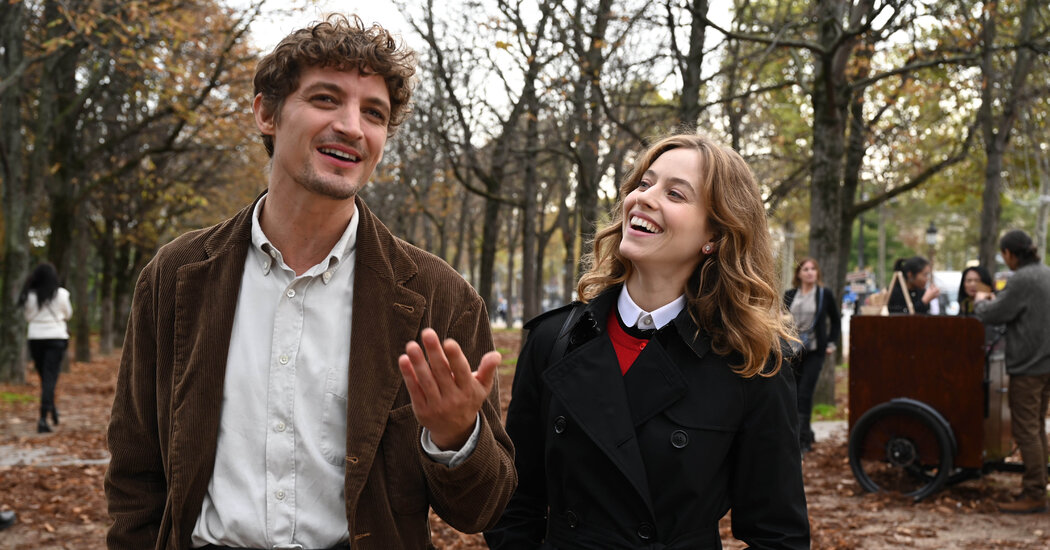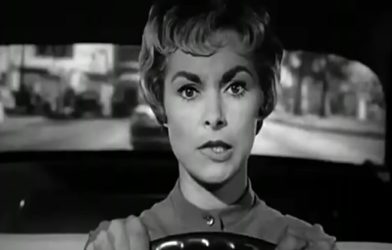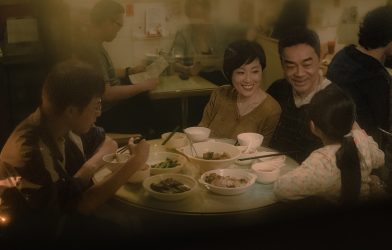“Coup de Chance,” the latest from Woody Allen, looks and plays like many of his recent movies, only better; it sounds like them, too, except that it’s in French. Set entirely in France, it features well-heeled, loquacious narcissists who circle one another in a comic-dramatic story that touches on existential worries and folds in lightly jaundiced observations about life. There are pretty people and handsome homes, repressed lives and unleashed desires, the usual. As is often the case in Allen’s movies, there’s also an act of infidelity, which presents a dilemma, if not an especially torturous one. The jokes are fairly muted; some are funny.
In a pleasant surprise, it centers on a woman, Fanny Fournier (Lou de Laâge), who didn’t make me cringe once. She’s intelligent as well as attractive, for starters, somewhere in her 30s and on her second husband, Jean (Melvil Poupaud). She lives in Paris, works at an auction gallery and seems interested in the world. Her life has texture and perhaps meaning, even if it’s a haut bourgeois bubble. There’s a Birkin bag on her arm when you meet her, as well as a maid to fetch drinks and a driver to deliver her and Jean to their country house, one of those quietly expensive retreats that most of us read about while waiting to get our hair cut.
Dreams are meant to be shattered in some stories, and bubbles popped. And so it is that one day Fanny runs into an old school friend, Alain (Niels Schneider), a charmer with a piercing gaze and angelic crown of tousled hair made for tender caresses. They exchange smiles and pleasantries — she also repeats her married name for him — and they make plans to have lunch. Life seems to resume normally for Fanny, but meeting Alain disturbs something in the air, as if there was a drop in atmospheric pressure. That night when she goes to a party with Jean, a tightly wound guy with money and some mystery, she seems restless, almost uneasy.
Thereafter, everything quickly falls into place. Fanny and Alain have one lunch and then another, and before long they’re in bed in his fairy-tale garret apartment. The affair rocks her, yet while Laâge lets you see that her character’s pulse has quickened and her eyes seem brighter, whatever the liaison has stirred in Fanny’s soul isn’t of interest to Allen. There are no shots of the lovers lying sex-drunk in bed, entwined in each other’s arms; only the amber light of Vittorio Storaro’s cinematography suggests there’s any heat in the room. And when Fanny tells a friend that the affair excites her, you have to take her word for it.
“Coup de Chance” is more sketched-in than satisfyingly detailed. Most of the characters are types, and despite some local color, the story might as well play out in New York, but it’s amusing, technically adept and looks like a professionally made movie (no small thing in the streaming age). The mood and tone remain consistently light, even as Allen piles on the teasingly ominous details, including a mysterious death that hovers in the background, as well as some thugs and private detectives who lurk on the sidelines. He also introduces a great character with Fanny’s mother, Camille (the invaluable Valérie Lemercier), whose conveniently timed visit with her daughter leads to the movie’s strongest, funniest bits.
Not long into “Coup de Chance” it becomes clear that Allen isn’t much interested in the affair as a human experience, profound or not; his focus is on its fallout and the cascade of dramatic events that ensue after Jean begins to suspect Fanny. Once he does, the story’s center of gravity increasingly lists toward him. It isn’t a happy shift, at least at first, partly because Fanny is more appealing than Jean is. By that point, Allen has seeded the story with suggestive details about the couple: She fears that their friends see her as a trophy wife (they do), while Jean’s attentiveness seems controlling, at times creepy.
If your sympathies remain with Fanny, it’s partly because Laâge’s unforced naturalism draws you to her character while Poupaud’s heightened, at times borderline caricature can be almost aggressively off-putting. Poupaud can be a subtly expressive actor, so the broadness of his performance initially reads as a mistake, as if he — like so many of Allen’s actors — had been left to figure out the character on his own and went in the wrong direction. Whether that’s how it played out, the net effect serves the story and Allen’s views on human affairs of the heart and conscience. “People carry sins around,” as someone says in “Crimes and Misdemeanors,” one of Allen’s greatest films. “It passes — with time, it all fades.”
Coup de Chance
Rated PG-13 for gun violence. In French, with subtitles. Running time: 1 hour 33 minutes. In theaters.









